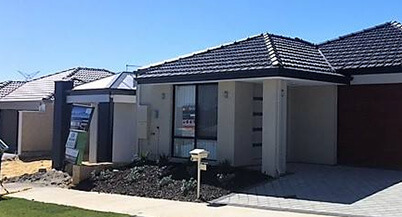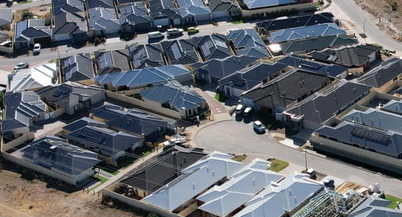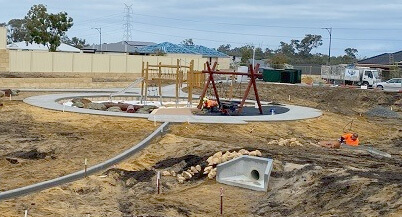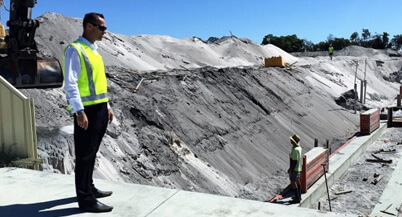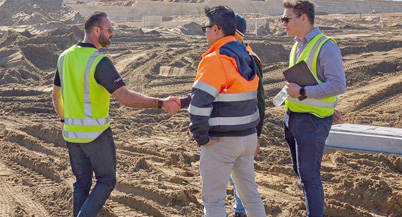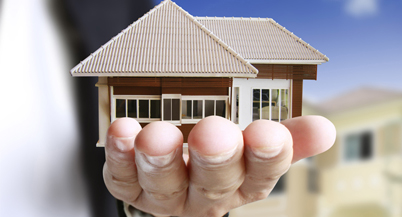5 Tips to Building your First Home
BUILDING YOUR FIRST HOME CAN BE A STRESSFUL EXPERIENCE….. SO HERE ARE FIVE TIPS TO HELP MAKE IT A SMOOTHER EXERCISE!
We all dream about one day building our own home and into today’s market it’s even more popular with First Time Home Buyers as it offers an affordable entry into the property market. However the actual thought for some people of going through the process scares them and turns them into a nervous wreck BUT with some careful planning and preparation, it doesn’t need to be that way.
Preparing for a smooth transition from beginning to end to ensure your dream home becomes a reality is paramount so here are a few steps to follow:
1. What can You Comfortably Afford?
We see it time and time again where buyers over commit themselves and get into financial stress, but this can be all avoided if you simply stick to the budget and utilise what’s available to you. All first home buyers should take advantage of government financial grants and concessions, such as the generous $10,000 First Home Owners Grant for new homes as well as savings on stamp duty upto $430,000. Above this amount you’ll pay on a sliding scale so check with your broker on actual amounts to be incurred.
Meet with a broker and work with them to access what your borrowing capacity is BUT also more importantly what is a comfortable amount in repayments you can afford. Always allow a cushion in interest rate increases as we are currently experiencing very low rates but understand it won’t be like this for ever, so assess your affordability on a higher rate to protect yourself. Your broker should be able to offer you a good recommendation on protection rate level.
Your about to start the journey of building your property nestegg. This may only be the beginning for you so start it in a way that it doesn’t disrupt your lifestyle otherwise the idea and freedom of owning your own home will become a hindrance. Planning and sticking to a budget is of upmost importance in building a home that becomes a financial asset to you.
So now you know how much you can borrow and more importantly how much you can borrow with comfortable repayment options. NOW it’s time to start making so decisions!
2. Location! Location! Location!
You hear it all the time on realestate shows Location is KING. So your first exercise should be deciding the best location that meets your needs BUT also will fit into your budget.
A prime location to you may be beach side, 700sqm block BUT realistically you know that’s not going to too happen in your budget so you need to think more logically. Right Location doesn’t mean it has to be located in the best suburb or million row, it’s more about what the location has to offer!
Picking the right location is your biggest decision to be made and it needs to be done at the beginning to save you the stress and frustration later. Base your decision on the perfect location around issues that affect your everyday living. If you work in the city, then access to public transport, freeway etc will be important. Are there shops, schools, parks, health care facilities all within close proximity? These are all very relevant to you now but also as a future assessment should you decide to sell. Home owners always say I’m not leaving here unless it’s in box…. But life always delivers the unexpected so don’t just think of the now but also the future.
3. Choose the Right Builder
Your builder needs to be someone you can trust and communicate well with. Take a couple of weekends and get out and visit some display homes. The reason for this exercise is to firstly get some ideas of what’s on offer but also meet some builder representatives. Now days your builders offering very similar products and pricing, your task is to connect with someone you feel understands you and will be able to help you through the next process which is designing your new home.
As a first time home buyer you want to go with someone who understands your situation but has the experience and skills to deliver a quality home. If you’ve been talking to an estate land agent ask them for recommendations as they will be dealing with builders daily and know who their clients are currently working with. Ask family and friends that have built if they have any recommendations or better still post it on local community groups online as you’ll get open, honest comments from people you’ve never met.
A good builder will have a wealth of experience to ensure a smooth construction process with a quality end product. Always check what the specifications being offered are and double check the inclusions.
Building a new home is an adventure but also a major responsibility and financial investment. Take your time to plan things out and work with a reputable home builder.
4. BUILDING ORIENTATION
Discuss with your builder the best options for your floor plan orientation as this is a key focus that needs to be considered when building. The direction and layout of your home affects which rooms get sunlight during the day.
When configuring your design takes these points into consideration.
*East side of home will get sun in the morning so it’s best suited for your kitchen and Dining areas.
*South side of home will be the coolest area and therefore more suited for your bedrooms.
*North side of home receives most daylight so this perfect for your family and living areas.
*West side of home faces afternoon sun so utilising this area for garages, laundry and bathrooms is a good idea.
You may not be able to get all orientation to best suit but work with your builder to ensure you have designed the best energy efficient layout for your home.
5. COMPLETE YOUR PLAN BEFORE BUILDING
Every change you request once you formalise your plan will cost you money, so avoid at all costs making any variations once building has commenced. It firstly ensures your costs are kept on track and secondly it doesn’t cause you any delays.
Finer details and quality finishings can be changed later without too much expense but ensure that the major decisions relating to construction have been thought over and finalised before it becomes very costly to change your mind. Constructing a home is an investment in money and time, so doing your due diligence and understanding what you want before signing the contract will give you peace of mind.



